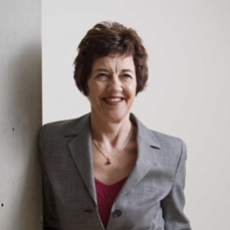
The University of Queensland has acknowledged the significant contributions made by staff, students and alumni to equity and diversity at the Vice-Chancellor's Equity and Diversity Awards.
The Awards were split into two categories, the Vice-Chancellor's Equity and Diversity Award and the Vice-Chancellor's Diversity Award for Alumni. UQ Business School Associate Professor and MBA Director, Polly Parker, was awarded second place in the Vice-Chancellor's Equity and Diversity Awards.
Since 2008, Associate Prof Parker has been responsible for designing and delivering a program for women's leadership within the Executive Education program at UQ Business School. Associate Prof Parker's commitment to the program and its continued success exemplifies her willingness to go “above and beyond” normal expectations of service to equity and diversity at UQ.
The Award winner was Dr Rob Pensalfini who heads up The Shakespeare Prison Project, which was formed in 2006. The program involves a team of professional actors, working with 12 to 20 volunteer inmates in a high-security men's prison. Dr Pensalfini facilitates each program, which runs for three to four months. The project introduces inmates to Shakespearean text and theatrical processes, allowing them to explore these themes in their own lives. This is the only project of its kind in Australia.
The other nominees for the Vice-Chancellor's Equity and Diversity Award were Brother Robert Callen for The India Immersion Project and Mr Ganesh Jagatheesan for The University of Queensland Law Society Equity Portfolio.
The evening involved a panel discussion on the topic: Unity in Diversity: Dream or Delusion? The theme for Diversity Week this year was Unity in Diversity. Panel members included Emeritus Professor Colin Power, Mrs Mary Graham and Dr James Jupp AM. The panel was facilitated by ABC personality Mr Richard Fidler.
The Vice-Chancellor's Diversity Award for Alumni honours a UQ alumnus who has demonstrated a commitment to diversity and has made significant contributions to meeting contemporary challenges within society through professional or community endeavours.
There were seven nominees for the Vice-Chancellor's Diversity Award for Alumni:
- Dr Jean Calder AC – programs of the Al-Amal City, Center of Ability Development of the Palestine Red Crescent Society
- Dr Sharon Dane – social inclusivity for sexual minorities
- Ms Mary D'Souza – Indigenous education and supporting young women in the fields of science, engineering and technology
- Dr Noel Hayman – recruiting and training Indigenous doctors and training future non-Indigenous doctors on issues facing Australian Indigenous communities
- Ms Katherine Hirschfeld – advocate for the advancement of women in science, engineering and technology
- Ms Margo Lydon – increasing awareness of mental illness and developing practices that can support the challenging lives of so many people
- Dr Timothy Purcell – international agricultural development and the development of the value-chain methodology
The winner of the 2012 Vice-Chancellor's Diversity Award for Alumni was Dr Jean Calder AC.
Dr Calder has established the many programs of the Al-Amal City, Center of Ability Development of the Palestine Red Crescent Society located in Khan Younis, Gaza Strip. Dr Calder has been living there for over 30 years, helping disadvantaged Palestinians and Palestinians with a disability.
The second Vice-Chancellor's Diversity Award for Alumni winner was Dr Timothy Purcell. This Award was awarded posthumously to Dr Timothy Purcell.
Dr Purcell's achievements exemplify the spirit of taking knowledge and experience gained at UQ and using it to the best of his ability to promote equity for the disadvantaged in our society.
Dr Purcell's professional career focused on international agricultural development as well as the implementation of the value-chain methodology, which is now used by organisations across the globe as a tool for intervention and to support the rural poor.



